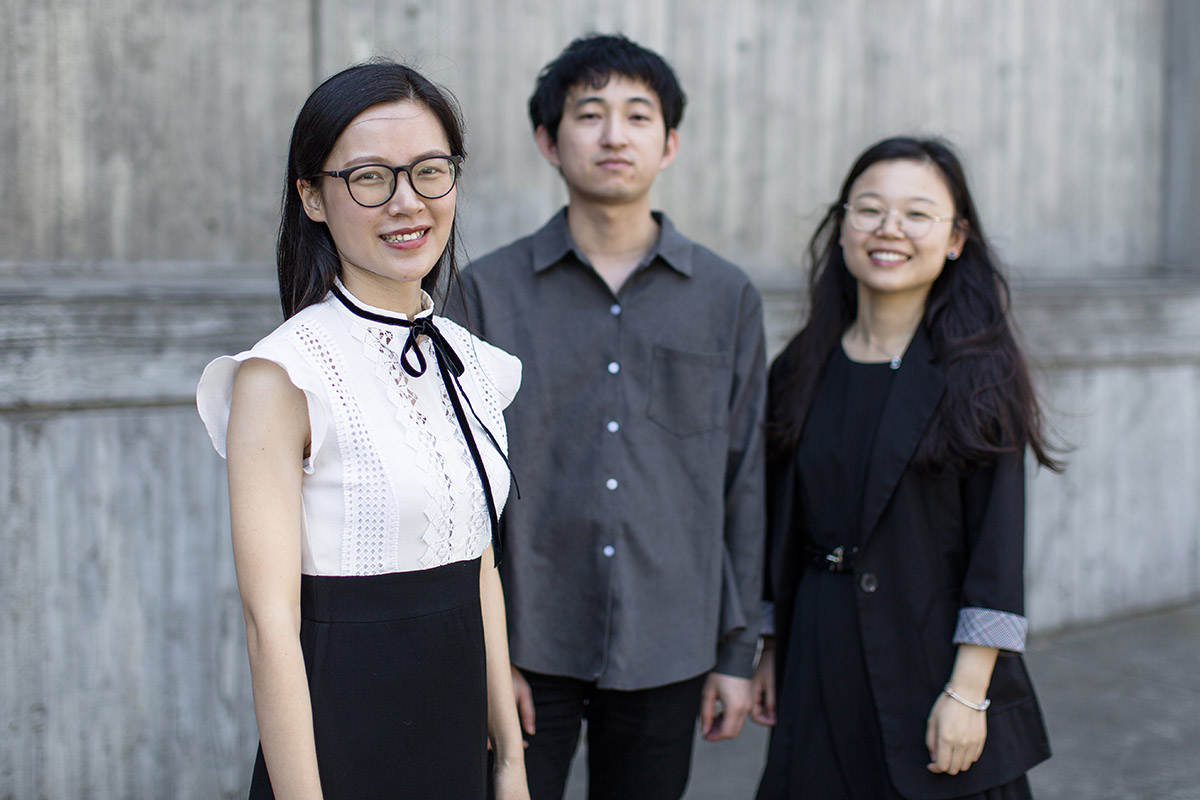Research
AI ambitions
CERA research is harnessing the power of artificial intelligence and retinal scans to improve health outcomes.
Dr Lisa Zhuoting Zhu is researching artificial intelligence’s (AI) potential to predict life expectancy, conduct rapid disease screening and improve chronic disease management.
As we age, our risk of illness and death increases. However, as Dr Zhu explains, our individual ageing process – our biological age – could more accurately predict future disease and mortality than how long we have lived.
However, measuring biological age can be costly, invasive and time-consuming.
But now a new research collaboration between Dr Zhu, CERA’s Principal Investigator, Ophthalmic Epidemiology, Professor Mingguang He and Associate Professor Zongyuan Ge, Head of Monash Medical AI Group, is investigating a better way to determine biological age – using a simple eye scan.
“From a clinical perspective, the retina at the back of the eye is a window to our health,” says Dr Zhu.
“We know retinal bleeding and retinal diseases are closely related to systemic diseases like cardiovascular disease, as well as future mortality.”
The research team has trained AI technology to calculate biological age by assessing an image of the retina for changes indicating the rate of ageing – something a health professional can’t do by sight alone.
Dr Zhu and colleagues have shown that the difference between an individual’s biological and chronological age – the ‘retinal age gap’ – can predict life expectancy.
In 2022, they progressed this research further, demonstrating that a person’s retinal age gap can also predict the risk of specific age-related diseases.
“Support from the National Health and Medical Research Council allowed me to refine the AI algorithm and apply the retinal age concept clinically,” says Dr Zhu.
“I found a one-year increase in retinal age gap was associated with greater risk of cardiovascular diseases like heart attack and stroke, as well as Parkinson’s disease.”

Rewarding innovation
Dr Zhu was awarded a prestigious Victoria Fellowship in recognition of the clinical and commercial potential of the retinal age project.
This will allow her to expand her research internationally, including in the United States, where she will work with AI company, Ascertain.
“Ascertain has more than 80 hospital networks, so this visit will help determine whether we can implement the retinal age project in the US.
“And with their big datasets, we can refine the algorithm and improve our technology.”
An AI-powered eye scan that can identify people at high risk of accelerated ageing could transform how we screen and treat age-related diseases.
“We want to trial this technology in GP clinics to determine the feasibility of implementing it into current practice,” says Dr Zhu.
“There is huge clinical potential if the tool is satisfactory for both physicians and patients.
“For example, a higher retinal age gap indicating accelerated ageing might prompt a patient to quit smoking or do more exercise.
“For existing chronic diseases, a higher retinal age gap may require more intensive management.”
Alongside her research on ageing, Dr Zhu is trialling an AI-driven smart camera designed to rapidly screen people in emergency departments who may have a life-threatening headache.
“With support from a Ramaciotti Foundation Grant, we conducted a pilot study that worked through the clinical workflow in a research setting,” says Dr Zhu.
“We are now ready to trial it in more locations in 2023.”
This article first appeared in See the future: Annual Review 2022.
